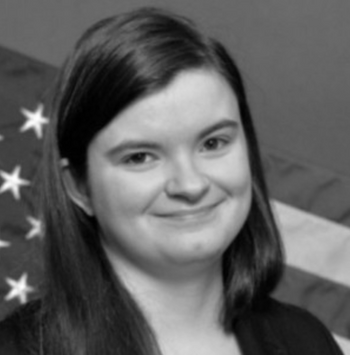UO prez: free speech doesn't protect prof who wore blackface
University of Oregon President Michael Schill is asserting that the right to be “free from racial harassment” is homologous to the right of free speech.
In an email obtained by The Register-Guard, Schill addresses the controversial “blackface” Halloween costume worn by law professor Nancy Shurtz, who has claimed that she was merely attempting to “draw attention” to a book about the paucity of black men in medical schools by donning a white coat and stethoscope while painting her hands and feet black for a Halloween party at her home that was attended by several students.
[RELATED: Prof’s blackface backfires]
While clarifying that he has “not played a formal role in responding to the incident” because the issue falls under the jurisdiction of the provost rather than the president, Schill acknowledges that “as president, I am ultimately responsible for everything on our campus,” and therefore felt compelled to present his views on the matter.
“When Professor Shurtz invited her two classes to her home for a Halloween party on October 31 and dressed up wearing blackface, she created a conundrum that is the stuff of a very difficult law school examination question,” he writes, asserting that “two very important principles were potentially in conflict—the right of students to be free from racial harassment and the right of faculty members to exercise free speech.”
As Schill recounts, several students at the party were offended by the costume, and while their attendance was not required, a law firm that conducted an independent investigation concluded that the students “felt compelled to attend their professor’s party and that they would potentially suffer negative consequences if they left early,” leading to the conclusion that Shurtz had violated university policies against racial harassment.
[RELATED: Oregon prof found guilty of harassment for blackface costume]
Schill describes himself as being “torn” over the situation, stating that although he believes that freedom of speech is “the core value of any university,” he also believes it is necessary to weigh the “value” of a given form of expression against the potential “harm” that it could inflict on students.
Asserting that “I personally am fairly close to the end of the spectrum that believes speech should be maximally protected,” he nonetheless goes on to argue that various forms of speech should not be protected.
“When faculty members pursue their avocation—teaching students and conducting research—they must be able to say or write what they think without fear of retribution, even if their views are controversial, and even if their research and their views risk causing offense to others. Otherwise, advances in learning will be stunted,” Schill declares. “This freedom of speech includes the freedom to share political views, academic theories, good ideas, and even bad ones, too. It includes speech that offends others. Without academic freedom we could scarcely call the UO a university.”
Yet he then turns his attention to the question of when offensiveness graduates to harassment, saying, “I should not be able to use my speech to deny others of their right to be free from racial or sexual harassment. I can hold—and share—controversial views. But that does not give me the right to harass specific individuals or to speak in any way I wish to, in any place, or any point in time.”
Citing examples such as a professor using the “N” word or making “repeated, sexually explicit remarks” in class with no educational purpose, Schill contends that even though Shurtz’s actions “took place in her home, not in the classroom...some of her students felt that they were in a similar situation to students in a classroom being subjected to harassing speech, as they felt pressure to attend and to remain at the event.”
[RELATED: Law prof rejects retribution against Oregon blackface prof]
Noting that “some commentators have taken to the barricades, and suggested that any finding or action taken with respect to Professor Shurtz will ultimately open the door to firing professors for expressing their political views,” Schill counters that such a reaction is “overly dramatic,” pointing out that Shurtz “remains a member of the law school faculty” while asserting that it would send a negative message to students “if we let the incident end without even an official letter of reprimand.”
Campus Reform reached out to Schill for elaboration, but did not receive a response in time for publication.
Follow the author of this article on Twitter: @AutumnDawnPrice

